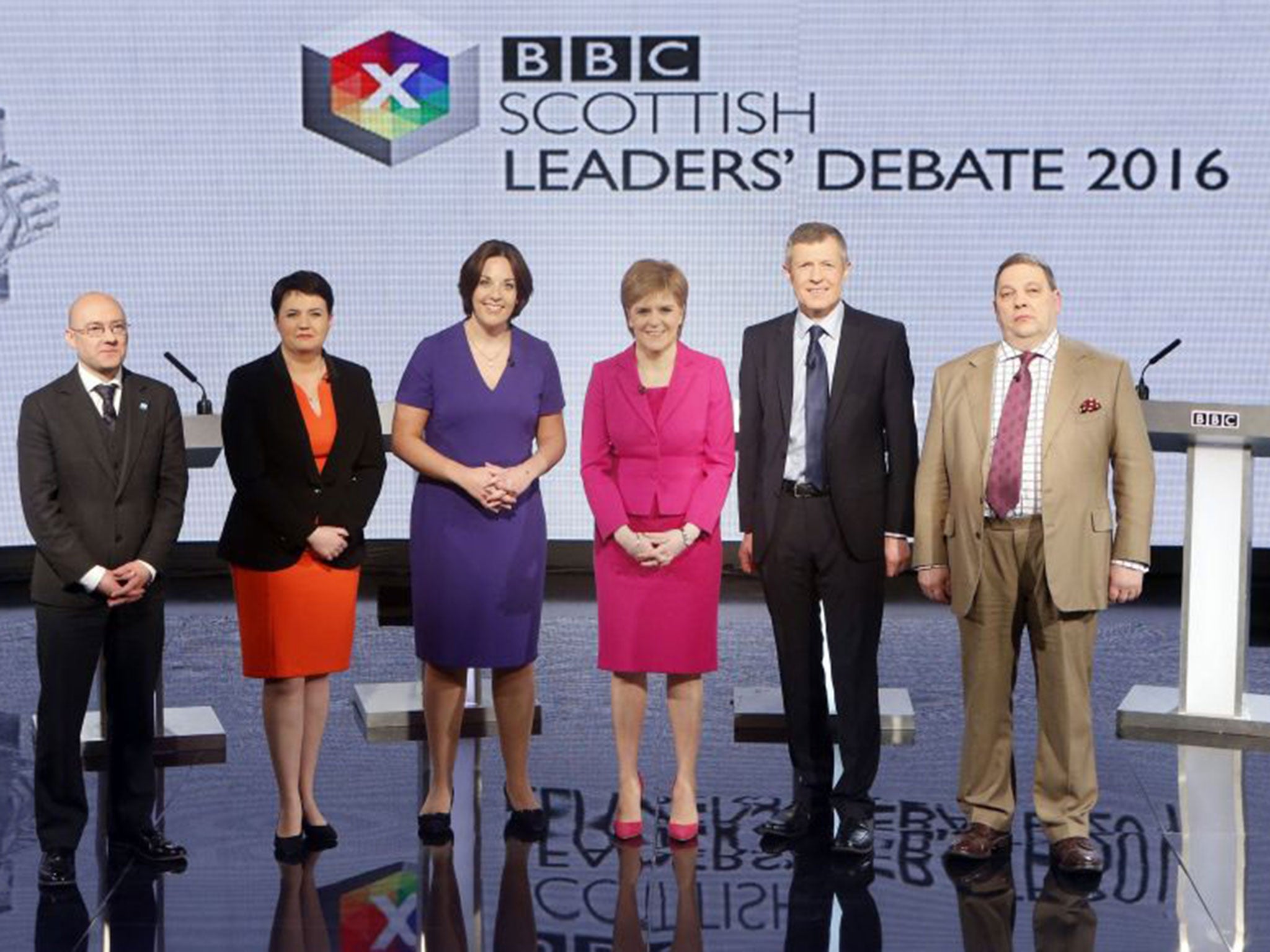Nicola Sturgeon: Scotland’s First Minister accused of being ‘scared’ to put up taxes
SNP leader suggests she could raise the top rate of tax for people earning more than £150,000 a year after pressure from her political opponents

Your support helps us to tell the story
From reproductive rights to climate change to Big Tech, The Independent is on the ground when the story is developing. Whether it's investigating the financials of Elon Musk's pro-Trump PAC or producing our latest documentary, 'The A Word', which shines a light on the American women fighting for reproductive rights, we know how important it is to parse out the facts from the messaging.
At such a critical moment in US history, we need reporters on the ground. Your donation allows us to keep sending journalists to speak to both sides of the story.
The Independent is trusted by Americans across the entire political spectrum. And unlike many other quality news outlets, we choose not to lock Americans out of our reporting and analysis with paywalls. We believe quality journalism should be available to everyone, paid for by those who can afford it.
Your support makes all the difference.A 50p top rate of tax for people earning more than £150,000 a year could be introduced in Scotland as early as 2018, Nicola Sturgeon has suggested as she was accused of being “scared” to put up taxes in the first televised debate ahead of May's Holyrood election.
The SNP leader made the concession after coming under sustained pressure from her political opponents to explain why she had decided not to increase the top rate to 50p as soon as Scotland is handed new powers over income tax in April next year.
Although her party supported the policy in its manifesto for last year's UK general election, Ms Sturgeon said earlier this week that raising the top rate of tax from 45p to 50p in Scotland would “risk millions of pounds of revenues a year”, as it may encourage the country’s high earners to move their money out of the country.
However, after the Scottish Labour leader Kezia Dugdale questioned why she had abandoned “something she used to stand for”, the First Minister appeared to soften her stance on the issue, indicating that while a 50p tax rate would not be introduced north of the border immediately, it would be kept under constant review.
“I've said we won't do it in the first year of the new powers – I haven't ruled it out for the rest of the parliament,” the First Minister said, explaining that the reason she was being cautious was due to civil service analysis which suggested that introducing a 50p rate could cost Scotland £30 million a year by provoking the wealthy to start avoiding tax. “I think there should be a 50p top rate of tax, but you don't set tax rates if it's going to cost you money,” she insisted.
The debate, held in front of a studio audience of voters at BBC Scotland's Pacific Quay headquarters in Glasgow, was the first of three scheduled by broadcasters ahead of the Holyrood election on 5 May. STV will host the second event in Edinburgh on 29 March, with the BBC due to stage the third and final debate on 1 May.
As well as the leaders of Scotland's two biggest parties, the hour-long debate also featured Ruth Davidson of the Scottish Conservatives, the Liberal Democrat leader Willie Rennie, Patrick Harvie of the Scottish Greens and UKIP's David Coburn. Welfare, education spending and fracking were among the topics discussed.
However, it was the issue of how Scotland should use its new tax powers which dominated the early exchanges. While Ms Dugdale said her party would increase the Scottish basic rate of income tax by 1p to raise the money needed to stop Westminster-led austerity, Ms Davidson said she would not increase tax, arguing that Scots should not have to pay more than people in the rest of the UK.
Pressed on why the SNP had only opted to place a moratorium on fracking in Scotland instead of banning the controversial gas extraction technique outright, Ms Sturgeon said she would only allow it to go ahead if she was advised by experts that it would carry no risks. “Unless it can be proved beyond any doubt that fracking doesn't harm our environment, doesn't harm our health, doesn't harm our communities, then no, fracking shouldn't be allowed ever at all in Scotland,” she said.
Although the debate became heated at times, with the six leaders being chastised by host Glenn Campbell for speaking over one another, it also contained some more humorous moments. At one point, when Ms Dugdale told viewers “It's Nicola's desk I want”, the First Minister retorted: “You can have the desk, you're just not getting the job.”
Join our commenting forum
Join thought-provoking conversations, follow other Independent readers and see their replies
Comments